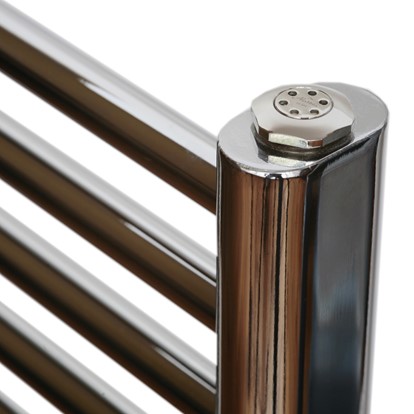**Collaborative Post**
AD: If you’re installing or upgrading your home’s heating system, you’re no doubt aware that it’s a difficult job that requires the right skills to complete. This makes it more expensive than many other home improvements. But it is a necessary one. So, you want to get it right and avoid the need to make costly changes.
If you’re having trouble choosing the right heating system for your home, here’s the lowdown on different types and who they’re best for.
Heating system types
The main thing you’ll need to decide on with any new heating system is whether you’re going to use a conventional gas boiler, or an alternative system using oil, electricity or renewables.
Gas boilers are still the most popular choice for powering a heating system. They’re suitable for almost any home where it’s possible to run a gas supply. Plus, it should be easy to find a qualified heating engineer in your area to fit one. However, gas boilers vary in capacity and quality, and as they’re not the most eco-friendly choice, you should aim for a highly-rated model to be sure it works as efficiently as possible.
If you can’t connect to the gas main, then an oil system is an alternative heating system you can use. In a similar way to gas combi boilers, it can heat your radiators and water. The only real difference is you’ll need an oil supply. This means installing a tank outside and finding an oil supplier to fill it up. The only thing to be aware of is the seasonal fluctuation in oil prices.
Radiators and underfloor heating
How your system distributes heat is an important part of your central heating. And there are two main choices: radiators or underfloor heating.
Radiators vary in type and size, which does affect their performance and how they look. Traditional panels are reasonably affordable and reliable. But those looking to add more style to their homes may choose to install cast iron, column or vertical radiators instead. To ensure they work well, you’ll need to check they have an adjustable valve and that they’re positioned to heat the room efficiently.
Radiators aren’t the only option and installing underfloor heating is becoming a popular choice. This is largely because it heats the whole room evenly and doesn’t take up usable space in your room. There are two types of underfloor heating systems to choose from. Whether you choose an electric or wet system will depend on what type of heating system you have (or will have), as it needs to be compatible. But don’t worry, this is something your heating engineer can help you with.
New technology
A ground or air source heat pump is another option for your heating system. But you’ll need to find an installer and have your home assessed for suitability. As it’s a newer technology, engineers aren’t as widely available and the initial costs can be expensive. There is a huge plus side though. Your home will be futureproofed with an eco-friendly system that’s not so reliant on energy prices. Furthermore, it should last a long time and may increase the value of your home.
An electric heating system is another option you may consider. Technological improvements have made electric boilers and direct heating systems more efficient and cost-effective than the older systems with storage heaters. Typically, they’re cheaper to install and low maintenance. As with gas central heating, you can control the temperature with a thermostat and there are apps that enable you to program your controls.
Installing An Auto-Bleed Valve Tool
By installing an efficient automatic bleed valve on your radiators, you can effortlessly release any accumulated air, ensuring optimal heat distribution throughout your home.
Unlike the traditional method of manually venting radiators with screwdrivers every few months, this innovative tool provides a hassle-free solution. With a lifespan of up to five years, auto bleed valves guarantee long-lasting performance, keeping your home warmer for extended periods and ultimately leading to significant cost savings over time.
Upgrade your heating system with an auto bleed valve tool and enjoy a more efficient and comfortable home environment.
Suitability
With any heating system, the most important thing to consider is whether it’s suitable for your home. First of all, the location of your home is likely to dictate what power sources are available to you. For example, many homes in rural areas don’t have access to a main gas supply. So, a gas boiler is out of the question. However, oil-fired boilers may be an option. Especially if you already own a tank or have the space outside to install one.
Electric heating systems are an option for most homes, although they do vary in capacity and cost. So, some systems are better suited to heating small rooms or studio flats. And electric boilers are not always as powerful as conventional gas boilers. But they can be very efficient and are usually capable of working with solar panels.
If you’re thinking of fitting underfloor heating, you’ll need to make sure your floors are suitable and the coverings you use are too. For example, vinyl isn’t usually suitable for laying directly over electric systems and wood coverings may warp with wet systems. This means that whatever you choose, you’ll need to check with your installer that it’s suitable first.
xXx




No comments:
Post a Comment